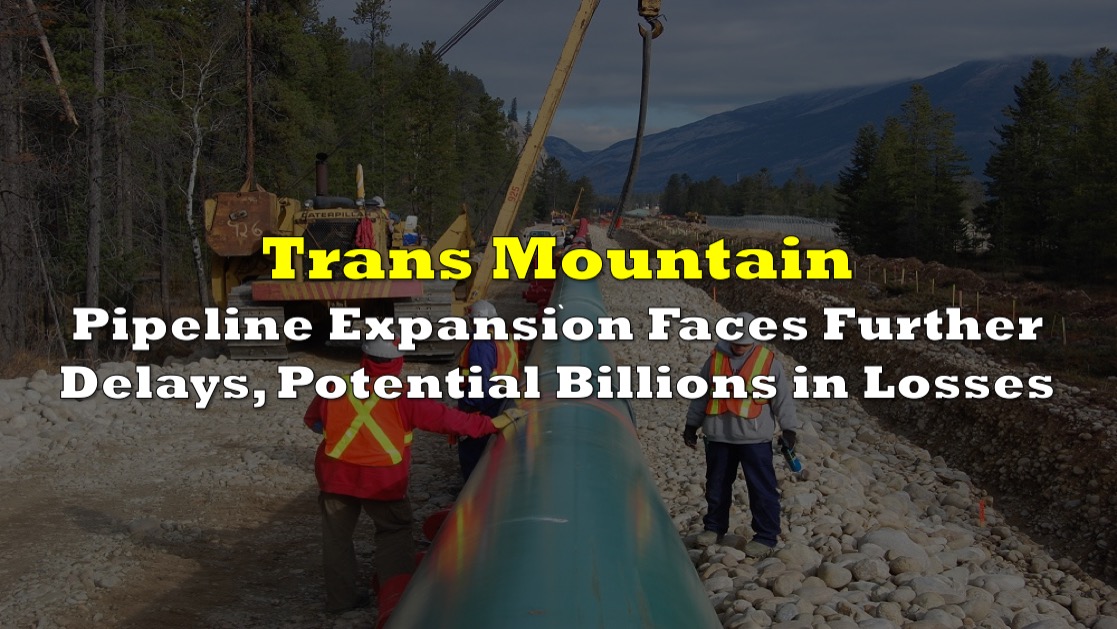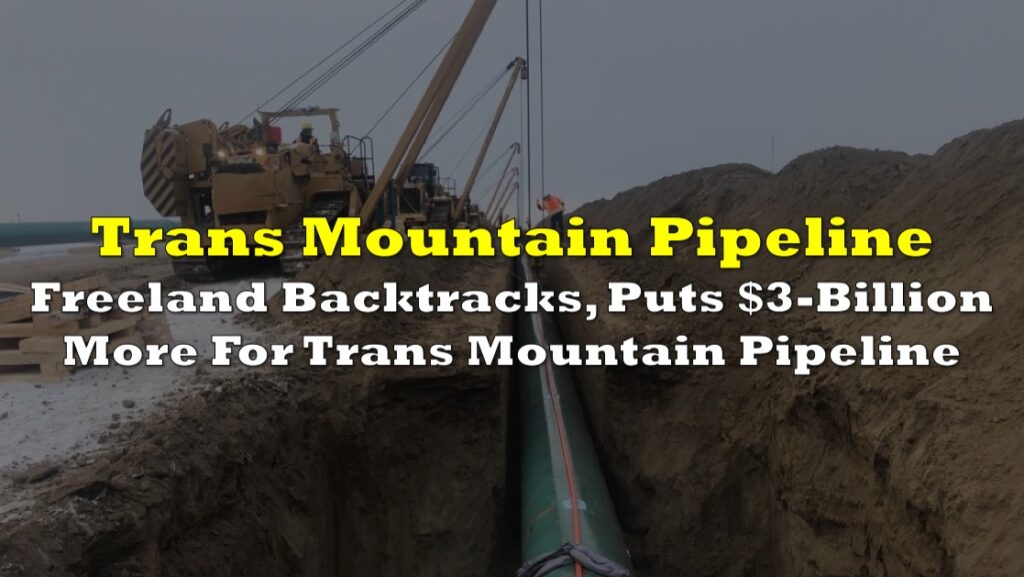The Canadian government-owned Trans Mountain Corp has raised concerns over the completion timeline and potential financial losses associated with the nationalization of the Trans Mountain Pipeline expansion. Despite being 95% complete, a rejection by the Canada Energy Regulator (CER) to proposed construction changes could result in a two-year setback and billions of dollars in losses.
Trans Mountain Corp has formally requested the CER to reconsider its decision to reject proposed construction changes on the oil pipeline expansion. The company warned of a “catastrophic” delay and substantial financial repercussions if the request is not approved promptly.
#Breaking: Justin Trudeau Liberals' colossal disaster that is the nationalization of the Trans Mountains Pipeline could be delayed further & cost tax payers billions more.
— Kirk Lubimov (@KirkLubimov) December 14, 2023
It's 95% complete but the regulator' rejection to a construction change proposal will set it back 2 yrs. pic.twitter.com/zpKftaOc7X
The rejected proposal involved a variance for a 1.4-mile (2.3-km) section of the pipeline under construction in British Columbia. Trans Mountain sought permission to use a smaller diameter pipe in response to challenging drilling conditions caused by the hardness of the rock in a mountainous area between Hope and Chilliwack.
In a letter to the CER, Trans Mountain emphasized that complications could arise if the currently approved construction plan proceeds, potentially compromising a borehole for the pipeline. The company argued that the hard rock conditions and fractured areas within the bedrock have led to high rates of water ingress, causing further complications.
“If the (horizontal directional drill) fails and Trans Mountain is required to implement an alternative installation plan, the Trans Mountain Expansion Project (TMEP) schedule will likely be delayed by approximately two years, and Trans Mountain will suffer billions of dollars in losses,” warned the company in its letter.
Trans Mountain has requested a prompt decision from the CER by January 9 to adhere to its existing schedule. The expansion, originally budgeted at $30.9 billion, has faced numerous setbacks and delays. The recent rejection by the CER adds to the challenges, potentially jeopardizing the project’s completion by the end of March 2024.
Stifel analyst Michael Dunn noted that given the new information provided by Trans Mountain, the CER is likely to approve its request. The expansion project, intended to triple crude shipments from Alberta to Canada’s Pacific coast, is currently 97% complete.
Concerns about delays have led to an increased discount on Canadian heavy crude compared to the North American benchmark. Oil producers, anticipating expanded options for exporting oil to refineries in California and Asia, have heightened output.
Information for this briefing was found via Reuters, City News, and the sources mentioned. The author has no securities or affiliations related to this organization. Not a recommendation to buy or sell. Always do additional research and consult a professional before purchasing a security. The author holds no licenses.








